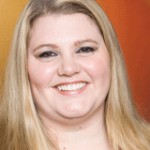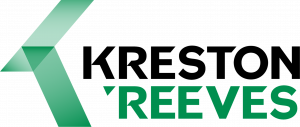Samantha Hart studied for the ATT and CTA exams at ‘Big Four’ firm, Deloitte, and after working in general practice, decided to pursue a career in journalism. Samantha tells us what it’s like to follow an alternative route in the tax industry
I ended up in tax almost by accident, but a very happy accident I am pleased to say.
I had planned to take a year out before going to university to study French and Management, but in the interim I applied to the big six (as it was then) accountancy firms. My father was a Chartered Accountant, so I enquired about getting a training contract in the audit department of one of these firms.
I was invited to various interviews, but at Deloitte I was interviewed by a Tax Partner with a view to becoming a tax trainee. Although I was only 19, I really enjoyed my interview as I was grilling my interviewer as to why I would want to work in tax, instead of audit.
I am very glad he convinced me of the attractions of tax, and I have never wished I ended up in audit instead!
I joined Deloitte in 1996 and the following autumn I passed my ATT examination. Never one to wait around I then completed the gold standard CTA exam in November 1998 and then the Financial Planning Certificate in 1999.
I then went on to study for, and pass my Chartered Accountancy exams, and as part of my training contract I saw a number of different parts of the Deloitte business, including audit and management consultancy.
I was glad to get back to tax. I was also fortunate enough to be involved in some high profile and high level projects whilst there, which were hard work, but very rewarding.
After spending some time in general practice and having babies, I decided I wanted to be back at the cutting edge of tax, and accepted a position in a tax planning team, before moving to the National Tax Department. Keeping the UK firm abreast of tax changes and writing articles, briefs and consultation responses, I loved being at the coal face and mixing with those that ended up shaping tax policy.
I also discovered hidden talents for breathing life and energy into traditionally dull and dry tax subjects through writing, and it was this that eventually led me to where I am today.
Today I work from home, which gives me great flexibility with two young children, and divide my time between writing on tax and financial subjects, and lecturing, primarily on private and capital taxes. I write for both online sources, like The Motley Fool, as well as print magazines like Taxation, Tax Adviser, Financial Director and Practising Accountant.
Why did you choose a career in tax?
I was always drawn to the accountancy profession due to my family background, but tax is so much more of a challenge, with new legislation every five minutes and tax problem solving.
What is a typical day like for you?
As most of my time is spent writing, either articles or detailed notes for my lectures, I am normally found at my computer with my head buried in legislation or doing other internet research.
Although it might seem lonely, I keep in touch with friends and colleagues by email, and can chat and network on social networking sites like Twitter. I can also meet people for lunch whenever I want to!
When I am not on a deadline I can’t just stop working, as I need to make sure I am abreast of all current developments, so I have a list of regular information sources that I check to get the latest breaking tax news.
What do you enjoy most about your job?
I enjoy the flexibility and I also enjoy being creative. People think that tax is very rigid and uniform, but it doesn’t have to be like that, and some of the top tax people in this country need to be very creative indeed!
I also enjoy the variety, and the fact that I could be writing about capital gains tax one minute, and the legality of outsourcing tax work the next.
What else would you like to achieve in the future?
Although I recently wrote an article titled ‘If I were Chancellor’, I am not after that job, although I do think the Treasury and HMRC could do with some practical input in a language their customers (ie the taxpayers) speak.
Of course, I always have one eye on Mike Truman’s job (editor of Taxationmagazine) and if Dave or Nick asked me to help them out, how could I refuse…
Do you have any advice for new graduates?
I think working in tax is a great opportunity and can lead to a variety of different career paths; you don’t necessarily have to work for an accountancy firm all your life.
Having said that, if you are serious about tax, you need to look at studying for the ATT and CTA, as these are, if you like, a quality standard that will show potential employers that you have a good and thorough grounding in tax.





